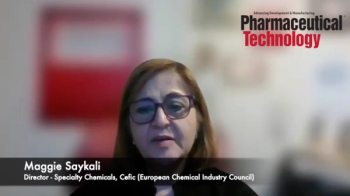
CPhI Worldwide Experts Make Predictions for 2017
Industry experts forecast the changes to the pharma industry for 2017.
The CPhI Worldwide expert panel forecasts that orphan drugs and neglected diseases are, in the short-term, likely to deliver pharma’s best revenue opportunities. Over the medium term, developing world economies and cost reductions from new technologies and working practices such as quality by design (QbD) and continuous processing should help sustain profits.
Continuous processing and QbD will also lead a paradigm shift at instrument companies with new models specially created for process monitoring and control. “The instrument companies will cooperate with software vendors to produce a more cohesive operating system that will allow multiple instruments to smoothly work in unison for [process analytical technology] PAT/QbD applications. In many ways, this will be similar to the unification of chromatography terms/specifications and the emergence of international standards for dissolution testing,” CPhI expert Emil W. Ciurczak, president of Doramaxx Consulting, said in a press release.
Continuous manufacturing is predicted to enter a new phase of implementation as contract research organizations (CROs) and contract manufacturing organizations (CMOs) adopt it as quickly as large pharma companies. The reasons for this shift is the wider funding environment that is being created for orphan drugs, with foundations and smaller patent cohorts. The shorter turnaround time will also aid CMOs with the larger number of products from client companies. R&D and clinical trials are also being shifted to CROs as larger companies shed sites and personnel.
CPhI expert Girish Malhotra, president at EPCOT International, agreed that drugs for orphan and neglected diseases “might give a short-term jump,” however affordability will remain a concern for sustained revenue growth. He warns, that unless new therapies are created for the global population at affordable prices there will be challenges, as developing “marginally better new drugs will not deliver sustained revenue increases” in the long term. Instead, he forecasts that the two biggest opportunities for pharma and generic-drug companies will come from the developing economies and process improvements.
“Pharma has to drive innovation from inside and excel in creating efficient drug development, process, and technology innovation in manufacturing and the supply chain. Simplified and innovative processes will produce quality products. Moving away from present practices of quality assurance after the fact can save significant monies,” said Malhotra in a statement.
It is still unclear how the new US Presidential administration will affect the pharma industry. Gil Roth, president of the PBOA, says it’s too early to make definitive predictions about the effect Donald Trump’s administration will have on the US healthcare and contract development and manufacturing organization sectors, especially given his recent commitment to bring-down drug prices. However, with a preference for protectionist strategies, a change in tax status for overseas revenues could trigger a spate of reinvestment in US facilities by big pharma as well as greater domestic M&A activity.
“Some of the President-Elect's statements on immigration could become problematic if they keep high-value scientific personnel from coming to the United States. His appointment for FDA Commissioner could shape policy there in ways that benefit or hinder pharma and CMOs. Congress' path to repeal and replace the Affordable Care Act leads through a minefield. It's all too vague at this point,” Roth said in a statement.
Source: CPhI
Newsletter
Get the essential updates shaping the future of pharma manufacturing and compliance—subscribe today to Pharmaceutical Technology and never miss a breakthrough.




